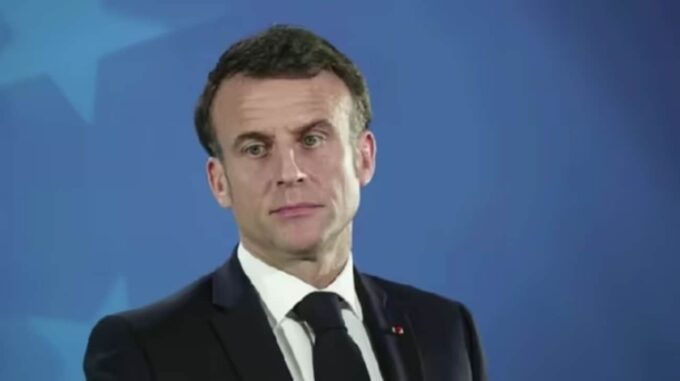Threat of a new wave of decisive actions: Macron after a call with Trump urges Russia to cease fire

French President Emmanuel Macron expressed his position regarding possible further steps in the context of the Ukrainian-Russian conflict. On the evening before, he announced a phone call with U.S. President Donald Trump, during which the issue of a ceasefire in Ukraine and the prospects for further actions by the international community were discussed. This took place on the eve of important diplomatic events, and the French leader emphasized the need for decisive and swift actions. In his official microblog on the social network X (Twitter), Macron published details of the conversation. According to him, he noted Trump's clear call for an unconditional announcement of a 30-day truce during the ongoing war. "I welcomed my American colleague's firm stance regarding the inadmissibility of any conditions or maneuvers aimed at dragging out the conflict, as the issue of a ceasefire is decisive for all parties," the French president underscored. Additionally, he mentioned that on Friday morning, this initiative was also supported by the leaders of the UK and Scandinavian countries, signaling increasing international consolidation around diplomatic resolution efforts. Macron emphasized that each side must immediately start implementing agreements to end active hostilities without any unnecessary maneuvers or manipulations aimed solely at prolonging the process. "Ukraine agreed nearly two months ago to a long-term ceasefire. Now, it's time for Russia to take the same step," he said, adding that France and its allies are ready to respond decisively to any violations through joint efforts. Widespread support for these steps was also expressed in Germany. German Chancellor Olaf Scholz, at the same summit conference, warned Russia of new sanctions if it refuses to agree to a prolonged ceasefire and active peace negotiations. Unlike Macron, who relies on diplomacy, Scholz outlined the possibility of increasing economic pressure to force Moscow back to the negotiation table. It is reported that prior to this, Scholz already phoned his American counterpart, Donald Trump, to confirm support for the three-day ceasefire plan and coordinate joint actions. Trump, in his recent interview, expressed a desire to establish an unconditional 30-day ceasefire, which, according to him, should allow stabilizing the situation and beginning real negotiations. He also once again emphasized the likelihood of tightening sanctions against Russia if it refuses to meet the demands of the international community. Overall, these statements indicate a unified international position calling for decisive actions and strong pressure on Russia to end military hostilities and begin diplomatic settlement. At the same time, considering the complex and dynamic frontline situation, a small hope remains that the parties will be able to find a compromise without further escalation of the conflict. Military personnel, politicians, and diplomacy continue seeking pathways to peace, but time demonstrates that the time for concessions has passed — now, decisive and united actions are necessary to stop the bloodshed.

